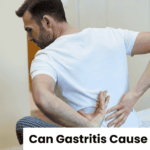Stiff and tight muscles are a common issue that can lead to back pain, affecting your daily life and overall well-being. Whether caused by poor posture, stress, or overuse, muscle tension can strain your back and lead to discomfort. This article explores how stiff and tight muscles result in back pain, why they occur, and practical solutions to manage and prevent it.
What Role Do Stiff and Tight Muscles Play in Causing Back Pain?
1. Restricted Movement
When muscles in the back become stiff and tight, they limit your range of motion, making everyday activities difficult. This restricted movement can lead to further strain on surrounding muscles and joints, exacerbating back pain.
2. Increased Pressure on the Spine
Tight muscles can compress the spine, leading to:
- Misalignment of vertebrae.
- Increased risk of disc herniation.
- Pain that radiates to other areas, such as the legs or hips.
3. Poor Circulation
Tight muscles reduce blood flow, which limits oxygen and nutrient delivery to the affected area. This can result in:
- Muscle fatigue.
- Prolonged stiffness and pain.
Why Do Back Muscles Get Tight?
1. Poor Posture
Spending long hours sitting or standing with improper posture can strain the back muscles, leading to tightness.
2. Stress and Tension
Emotional stress often causes physical tension, especially in the back and shoulders. Chronic stress can lead to persistent muscle stiffness.
3. Overuse or Strain
Activities like heavy lifting, repetitive movements, or intense workouts can cause back muscles to tighten as a protective response.
4. Lack of Activity
Sedentary lifestyles contribute to muscle deconditioning, making them more prone to stiffness and tension.
Common Symptoms of Tight and Stiff Back Muscles
- Persistent back pain, especially in the lower back.
- A feeling of tightness or tension in the back.
- Difficulty bending, twisting, or moving comfortably.
- Pain radiating to the shoulders, hips, or legs.
What Causes Tight Back Muscles?
1. Muscle Imbalances
When certain muscle groups are overdeveloped or underused, they can cause imbalances that result in tightness and pain.
2. Dehydration and Poor Nutrition
Inadequate hydration or lack of essential nutrients like magnesium can contribute to muscle cramps and stiffness.
3. Improper Exercise Technique
Performing exercises with poor form can strain the back muscles, leading to tension and injury.
4. Chronic Conditions
Conditions like sciatica, fibromyalgia, or arthritis can cause recurring muscle tightness and back pain.
How to Treat Tight Muscles and Relieve Back Pain
1. Stretching and Mobility Exercises
Gentle stretches can help alleviate stiffness and improve flexibility. Consider incorporating a mobility training program into your routine to enhance joint and muscle function.
- Cat-Cow Stretch: Relieves tension in the back and spine.
- Child’s Pose: Stretches the lower back and promotes relaxation.
2. Massage Therapy
A professional massage can loosen tight muscles, improve circulation, and reduce pain.
3. Heat and Cold Therapy
- Heat Therapy: Relaxes muscles and increases blood flow.
- Cold Therapy: Reduces inflammation and numbs acute pain.
4. Proper Hydration and Nutrition
- Drink plenty of water to keep muscles hydrated.
- Include foods rich in magnesium and potassium, like bananas and spinach, to prevent cramps.
Tips to Prevent Stiff and Tight Back Muscles
- Maintain Good Posture
- Sit with your back straight and shoulders relaxed.
- Use ergonomic furniture to support your spine.
- Stay Active
- Incorporate regular exercise into your routine, focusing on core strength and flexibility.
- Manage Stress
- Practice relaxation techniques like deep breathing, meditation, or yoga.
- Avoid Prolonged Sitting
- Take breaks to stand and stretch if you work at a desk.
- Warm-Up Before Exercise
- Always prepare your muscles for activity to prevent strain or injury.
When to Seek Medical Help
If back pain persists despite home remedies, it’s important to consult a healthcare professional. Signs that require medical attention include:
- Severe or worsening pain.
- Pain accompanied by numbness or tingling in the legs.
- Difficulty walking or standing.
FAQs About Stiff and Tight Back Muscles
1. Why Are My Back Muscles Always Tight?
Chronic muscle tightness can be caused by poor posture, stress, or underlying medical conditions like fibromyalgia.
2. How Can Stiff and Tight Muscles Result in Back Pain?
Tight muscles restrict movement, strain surrounding areas, and increase pressure on the spine, all of which contribute to back pain.
3. What Can You Do for Tight Muscles?
Stretch regularly, stay hydrated, and use heat or cold therapy to relieve tension and improve flexibility.
4. Why Is My Lower Back So Tight?
Lower back tightness may result from prolonged sitting, poor posture, or muscle strain during physical activity.
Conclusion
Stiff and tight muscles can lead to significant back pain by restricting movement, increasing spinal pressure, and reducing blood circulation. Understanding the causes of muscle tension and taking proactive steps to prevent it can greatly improve your quality of life. Incorporate regular stretching, proper posture, and stress management into your routine to maintain a healthy, pain-free back. If symptoms persist, seek professional medical advice for proper diagnosis and treatment.
Disclaimer: The content on Wellness Derive is for informational purposes only and not a substitute for professional medical advice, diagnosis, or treatment. Always consult a healthcare provider for medical concerns.



